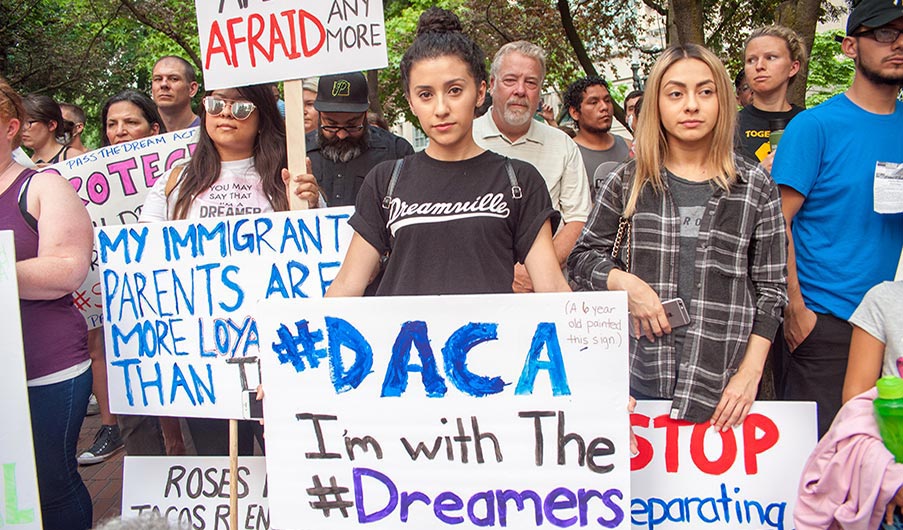Miami
Hialeah
Houston
- (305) 261-7000
- HABLAMOS:
 Español
Español
 Español
Español

Since June 15, 2012, many immigrants in the United States were allowed an extraordinary change in the immigration status, thanks to the Secretary of Homeland Security and the current President Barak Obama who declared a program of immigration relief for all those who approach to the US territory as children and met some criteria.
Here you will learn who the people that can qualify for this program are — also, the steps to take to resolve your illegal immigration status.
When someone is approved for deferred action for Childhood Arrivals (DACA), there are numerous benefits. People receive permission to live and work in the U.S. for two years subject to renewal. They can be eligible to apply for a work permit by using USCIS forms. A DACA Miami beneficiary is considered lawfully present in the U.S. and is eligible to apply for a social security number, and in most states, be eligible to apply for a driver’s license. If you are in a situation where you need to travel outside of the United States, you may receive permission for different reasons such as educational, employment, and others, using the USCIS form.
Many of today's young immigrants in the United States are eligible for the benefits of deferred action for childhood arrivals program, but they must meet specific requirements including:
For all undocumented individuals who are eligible for deferred action for childhood arrival program and entered the United States before age 16 and after the effective date of the application must have the following documents:
If the young immigrant meets the requirements to apply for the program, they should first contact one of our immigration lawyers. Gallardo Law Firm Miami can help individuals in obtaining immigration status and organize all required documents:
Once the immigration lawyer gathers all required documents, they are sent to the USCIS department with the fee amount of 465 U.S. dollars which includes the fingerprints for the future request.
The government has the judgment to authorize or deny Deferred Action for Childhood Arrivals. Moreover, if the individual engages in activities that no longer entitle him/her for DACA, the government can revoke the process.
It is important to have into consideration that DACA is not a course to obtain the lawful Permanent Residence or Citizenship, nor offer advantages to members of the family of DACA recipients.
The deferred action program for arrivals in childhood offers excellent benefits in the immigration status of thousands of teenagers who currently live in the United States and hundreds of people who entered the territory still very young and dedicated their lives to the country. Below are some of the advantages that come with this program:
Immigration attorneys in Miami, Florida play an essential role in the immigration processes. They will educate the individual on the rights and options and practical solutions to the specific issues. The immigration lawyers in Miami will help make the entire process necessary for the applicant and the family. It is essential to work from the start with an immigration attorney because they know the immigration law and can help guide the individual in obtaining immigration status.